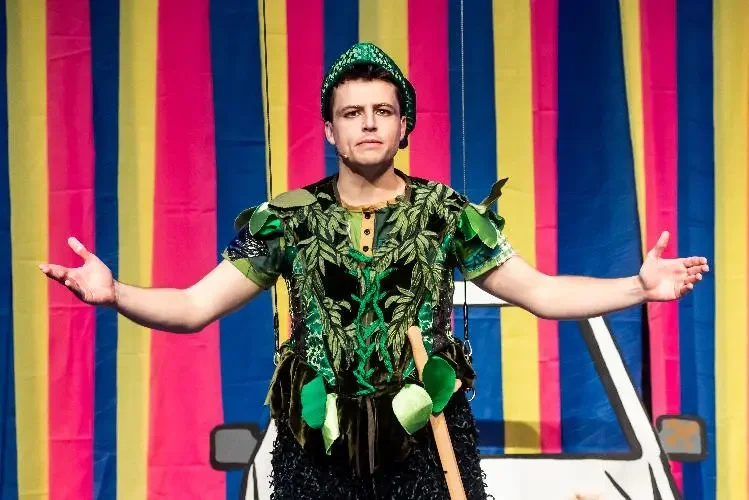An Interrogation, Hampstead Theatre Review
An Interrogation at Hampstead Theatre production image. Photo by Marc Brenner
Written by Greta for Theatre and Tonic
Disclaimer: Gifted tickets in exchange for an honest review
The premise and outline of An Interrogation do exactly what it says on the tin; the play follows the voluntary, seemingly unimportant police interrogation of Cameron Andrews (Jamie Ballard) a man suspected of being involved in the recent kidnapping of a woman named Joanna, who has been missing for almost 70 hours.
The more time it passes, the less probability there is that the police will find Joanna alive; the clock is deafeningly counting down for Detective Constable Ruth Palmer (Rosie Sheehy), who is undertaking her first solo interrogation. As the two politely introduce themselves and take their places in the interrogation room, we are almost immediately prompted to notice the class divide between Palmer and the upper class CEO sitting at the other side of the table; tensions around social status, gender and generational splits will resurface throughout the whole piece, blurring the lines between the formal, professional dimension of the interview, and the messier, inevitably prejudiced personal spheres within which the two characters operate.
The show has a way of making the audience reflect on their own biases: who are we more inclined to believe when there is no strong evidence to establish who is right? Does Cameron Andrews look like the type of person who could commit a crime? Do D.C. Palmer’s instincts about his involvement appear justified? There is an interesting tension in witnessing the questioning of someone who, for the most part, is as likely innocent as he is guilty. The actors walk this emotional tightrope masterfully, never letting the charged energy of the room drop. Sheehy is utterly credible in her portrayal of, as Andrews call her, an “activist detective”, delivering a thoughtfully nuanced performance that convinces in its directness and disheartens when she has to defy her own moral code. Ballard matches her high acting standards with deliberately ambiguous expressions and carefully phrased retorts. His character is also rooted in contradiction, being described as “shifty” and “too smart for his own good” but ultimately giving an impression of harmless, almost boring respectability.
The politics embodied by the two protagonists are further complicated by D.C. Palmer’s position of power in the room. She is not above using this authority to employ some morally questionable techniques of interrogation, and I'm left wondering if the show could have questioned the grey area of such practices more convincingly. Several interrogation methods employed by the police involve bluffing or downright lying, aiming to corner the suspect against a wall of panic and hopelessness; while they might induce guilty people to own up to their crimes, they might have the same effect on innocent ones. These techniques – manipulative at best, but ultimately coercive – have the potential to cause enormous damage.
One of the highlights of the production is Sarah Mercade’s clever scenography, complemented by careful video design by Dan Light. These two elements multiply the audience's viewpoints on the interrogation, thanks to the presence of cameras projecting the live footage of the proceedings on the wall behind, the only non-naturalistic element in the otherwise unnervingly realistic, poignant set design. When D.C. Palmer starts the recording, we are shown the bird's-eye view footage of the room which the other detectives are monitoring from a separate space, but we are also given an additional insight through closeups of the characters faces as well as of their hands hiding on their lap, underneath the table. As the interrogation proceeds, the unique perspective on the characters' faces and hands reels us in, compelling us to interpret hands fidgeting and eyes shifting as vital clues to decipher what is happening behind the characters' facades.
Though it does feature some light – albeit interesting and well-executed – twists, An Interrogation doesn't deliver significant shifts in the ownership of the upper hand, making the back and forth of the questioning less knotty and unpredictable than expected. Nonetheless, the gripping text and tight direction by Jamie Armitage deliver an enjoyable, absorbing thriller that keeps our attention high and our interest piqued.
At Hampstead Theatre until 22 February 2025
★★★★













